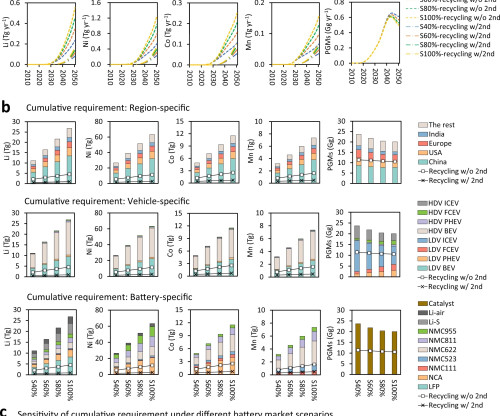Cornell study examines trade-off between critical metals requirement and transportation decarbonization
Green Car Congress
APRIL 17, 2023
Higher EV penetration reduces GHG emissions from fuel use regardless of the transportation energy transition, while those from fuel production are more sensitive to energy-sector decarbonization and could reach nearly “net zero” by 2040. —Zhang et al. (a) a) Annual demand and recycling potential with or without a second use. (b)










Let's personalize your content